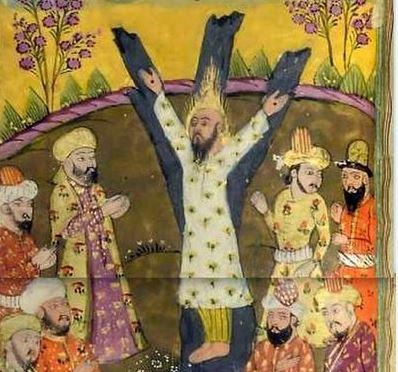Abu Isa al-Warrâq

Al-Warrâq (or Abu Isa al-Warrâq) was a renowned Islamic scholar and man of letters of the 9th century. He is particularly known as a critic of orthodox Islam and as a philosopher who engaged with various religious and intellectual movements of his time.
Here are some interesting facts about him:
📚 Who was al-Warrâq?
Full name: Abu Isa al-Warrâq (the name "al-Warrâq" means "papermaker" or "bookseller," suggesting that he was involved with writings and literature)
Time: 9th century, during the Abbasid dynasty
Origin: Probably from the area of present-day Iran or Central Asia
🤔 What did al-Warrâq do?
He was a critical thinker and challenger of the traditional religious authorities of his time, especially Islam.
He is said to have been a humanist who was in contact with early scientific, philosophical, and religious movements.
Al-Warrâq criticized dogmatic religious views and advocated a rational approach to religion and philosophy.
🔎 Criticism of Orthodox Religion
Al-Warrâq belonged to a group of "free thinkers" (sometimes called freethinkers) who did not necessarily believe in the authority of the Quran and the Hadith.
He is said to have questioned the religious dogmas of Islam in his writings and discussions, and there is evidence that he also held materialist views—that is, he rejected metaphysical explanations of the world in favor of natural and scientific explanations.
📜 Influence and Traces
Al-Warrâq was likely part of a movement known in the Islamic world as the Mu'tazilites – a rationalist wing of Islamic theology that emphasized reason and the human capacity to acquire knowledge.
However, his writings survive only in fragments, and many of his works have been lost. They nevertheless influenced later thinkers and philosophers.
⚖️ The Connection to Other Schools of Thought
Al-Warrâq is often mentioned in the same breath as other critical thinkers of the time, such as Ibn al-Rawandi and al-Razi, all of whom questioned orthodox Islam.
He had an important influence on the philosophical and intellectual tradition in the Islamic world, shaping thinking regarding faith and reason.
🕊️ Legacy
Although many details about Abu Isa al-Warrâq's life have been lost, his legacy as a freethinker remains. He is a fascinating example of the intellectual diversity of the Islamic world during the Middle Ages and demonstrates that critical voices existed during this period that challenged the dominant religious structures.

